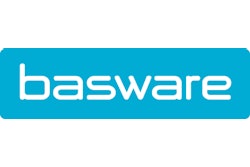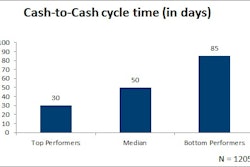Stamford, CT—Dec. 18, 2015—Basware, a provider of e-invoicing and purchase-to-pay solutions, predicts a transformative shift in the way companies will pursue financing, increase cash flow and grow their businesses in 2016. Built upon online business commerce networks that are changing the way business is done, key trends will drive this new business landscape, including: the consumerization of finance, marked by a focus on the customer experience; the growth of cloud-based financing; the use of predictive analytics to help companies better leverage financial and supplier data to increase cash flow and strengthen supplier relationships; and the rise of government e-invoicing initiatives in the public sector, which will help promote these changes.
“2016 will be a transformational year for business finance,” said Esa Tihilä, CEO of Basware. “Industry forces, as well as advanced technology and new business-to-business (B2B) services are converging to give businesses unprecedented agility when managing their cash flow and working capital. The purchase-to-pay function will move from an operational to a strategic one, becoming a business driver, as companies determine not only how and when they will pay suppliers, but also how they will finance these payables to maximize their capital positions. This major shift in how companies finance their receivables will also empower suppliers, especially small and mid-sized businesses, as they realize the benefits of new financing opportunities that enable them to increase cash flow to fuel business growth.”
Based on its industry leadership role and insight from customer engagements, Basware identified the following five key business finance trends that will significantly change the B2B finance landscape in 2016.
1. The Consumerization of Business Finance
Businesses’ ongoing need to increase their cash position, along with new technologies providing greater visibility and control, are enabling corporate finance departments to shift from a tactical to a strategic function that supports business growth. User expectations for increased usability through improved interfaces, mobile accessibility and apps, and dashboard analytics are consumerizing business finance. Likewise, the role of alternative payments in B2B are following the path of payment solutions in the business-to-consumer (B2C) world, providing companies with an ever-expanding roster of financing options.
2. Cloud-Based Financing over B2B Networks Enables Just-in-Time Financing
Many companies are turning to the cloud for faster, more efficient ways to get financing and boost their working capital. New cloud-based financing services based on global business commerce networks are giving them quick, just-in-time access to capital. For example, critical information such as the companies and their buyers, the dollar amount of invoices and more, are already captured through the business network. At the same time, cloud-based financing also gives banks and alternative financers greater opportunities to expand their businesses by offering financing down to the very granular invoice level.
3. New Financing Options Enable a Collaborative Supply Chain
The days when buyers wielded all the power are coming to an end, instead morphing into a more balanced buyer-supplier relationship in which both parties have more flexibility and control over payments. As B2B networks enable new financing options, suppliers will have greater opportunities to get paid faster through more favorable financing options and maintain a healthy cash flow. At the same time, buyers will have more options for extending payments without impacting their relationships with their suppliers, enabling easier, more efficient and mutually beneficial ways to transact.
4. Predictive Analytics Will Enable Smarter Financial Decisions
A new generation in predictive analytics is enabling finance organizations to leverage big data to identify critical and meaningful financial trends, and drive greater security. This will enable companies to quickly identify opportunities for business growth, and provide insights for making better, faster and more informed financial decisions.
5. Governments Are Now Driving e-Invoicing, Paving the Way for e-Payments
The U.S. government (in line with the European Union) recently mandated e-invoicing for all its suppliers by 2018 and a major push is also underway by many other governments around the world to promote e-invoicing. These efforts are being driven by the need to increase efficiencies, decrease cost, reduce fraud and ensure compliance of sales tax revenues.
In an effort to improve B2B trade and support the financial health of smaller businesses, governments are promoting initiatives that encourage faster payment. For example, President Obama’s Supplier Pay Initiative prompts companies to pledge faster payment to their small suppliers or offer them a financing solution with access to working capital at a lower cost. Similarly, the United Kingdom’s Prompt Payment Code is a voluntary agreement for sound payment practices to help small businesses get paid within a reasonable timeframe.













![Pros To Know 2026 [color]](https://img.sdcexec.com/mindful/acbm/workspaces/default/uploads/2025/08/prostoknow-2026-color.mduFvhpgMk.png?ar=16%3A9&auto=format%2Ccompress&bg=fff&fill-color=fff&fit=fill&h=135&q=70&w=240)

